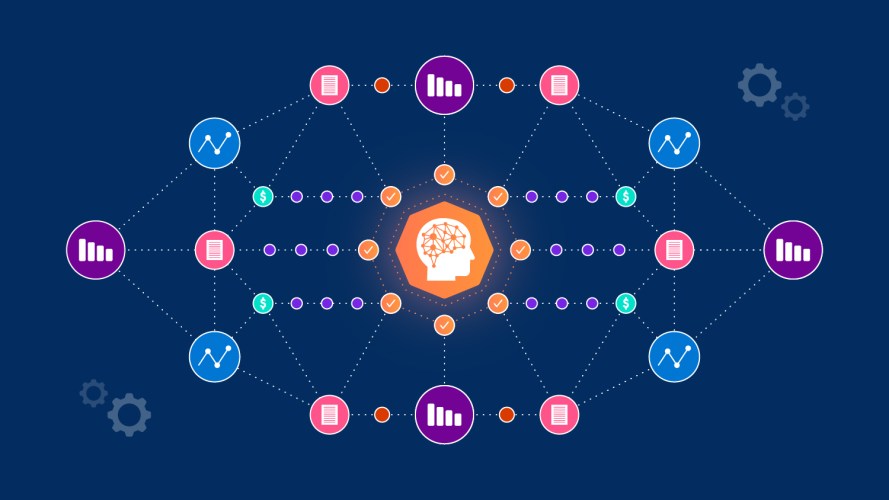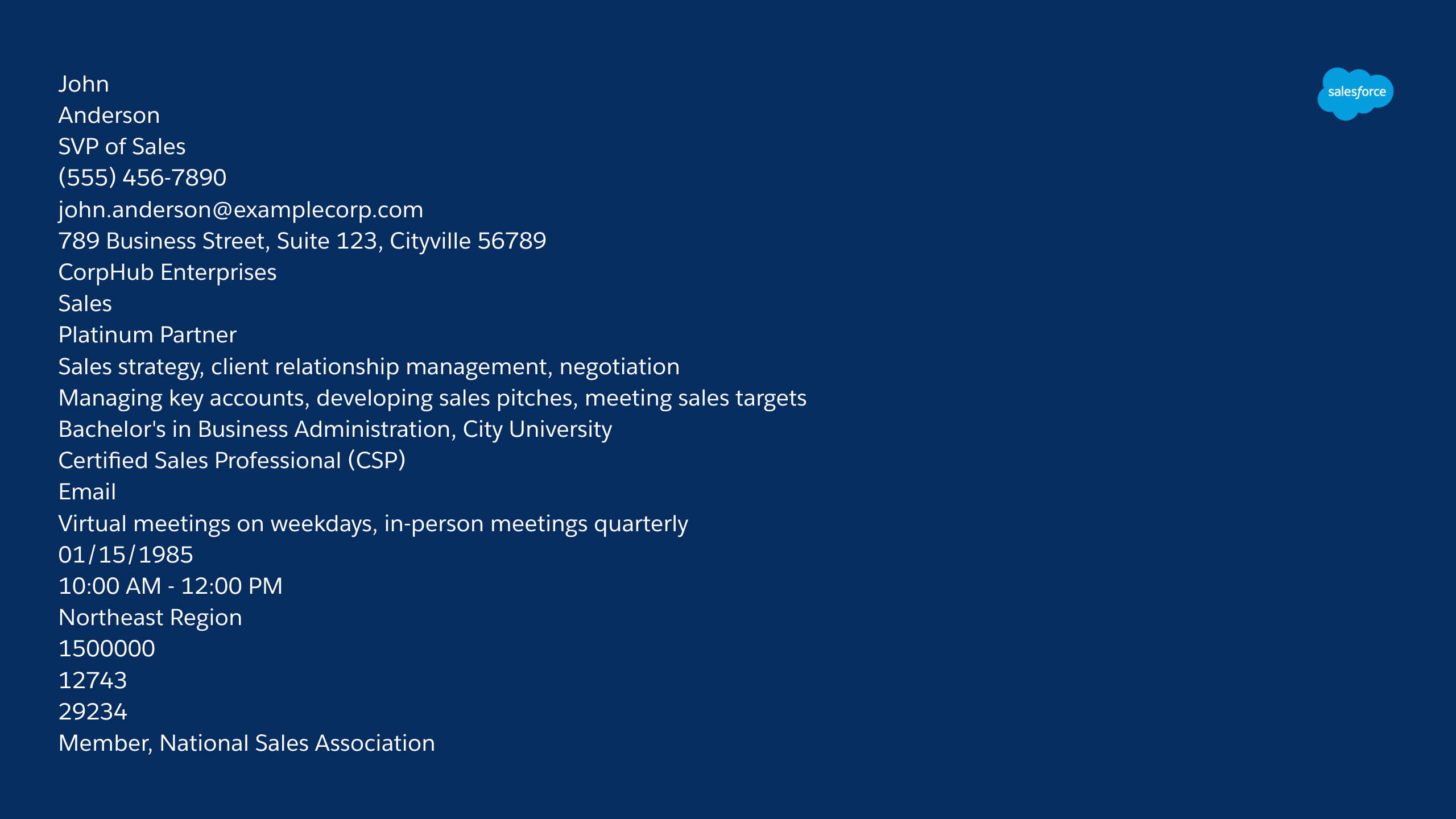What is Metadata in AI?

Every AI platform and copilot out there is built on reams of data. But the most accurate and relevant ones are built on data and metadata. Here's why that matters.
Generative AI relevance, or the degree to which AI outputs are useful, relevant, and aligned to business needs, is such a vexing business challenge it’s been described as one side of the AI Bermuda Triangle.
That’s because data, on its own, provides little context about meaning, origin, or anything else. Simply put, better data gives you better answers from AI. For example, if you ask generic AI about a sales transaction, you’ll get minimal information such as amount and date. But if you ask the same question to AI with metadata, you get a much richer picture: exact transaction time, customer and product information, sales channel, payment method, sales reps involved, location data, and more.
Metadata is, simply, the difference between useful and useless AI outputs. These two screenshots illustrate that difference:


What you’ll learn
- What is metadata?
- How does metadata work?
- How metadata makes AI better
- Understanding queries better with metadata
- Make your data work harder
What is metadata?
Metadata is like a labeling system for your data, providing added context and information about it. It helps businesses categorize and locate information more efficiently, which is especially helpful with large volumes of data. The added context also helps ensure information is accurate and reliable, and bolsters compliance and security, since metadata helps identify who has accessed and modified data.
For businesses, metadata provides valuable context about data’s sources, its purpose, keywords, profiles, permissions, and more. Salesforce has long used metadata across the entire CRM portfolio to, among other things, describe data and the way that records behave.
Every AI platform and copilot out there is built on reams of data. But the most effective are built on data and metadata. We’ll explain what this means and why it’s so important to the success of your AI efforts.
How does metadata work?
Unlike generic data, which doesn’t include context, metadata describes the layout, behavior and relationship of the data. This contextual information helps AI systems better understand the content and generate more relevant outputs.
“You have lots of data sitting in spreadsheets, slide decks, and text documents. That doesn’t help you form a single view of your customer, and it doesn’t describe all the data related to the customer,” said Gabe Sumner, director of technical product marketing at Salesforce. “You need data plus metadata. Businesses may not be thinking about that, but it’s a core differentiator, and something they should look for in their AI platform.”
How metadata makes AI better
Metadata improves the quality of generative AI by providing context that sharpens accuracy, and ensures relevant data is used, enhancing the precision and usefulness of AI-generated content. In short, metadata helps you get much better results from AI.
If you ask AI, “Can I close the deal with ABC Inc. this quarter?” it would pull data on historical purchases, phase of the deal, sizing, and more, to give you the most relevant, accurate, up-to-date answer.
When you add your business data into the AI prompt with grounding, you get a better (but not necessarily perfect) answer. Why? Because data is open to interpretation. Is that string of numbers pulled from a customer’s record their phone number, their purchase history, or something else?.
Because metadata provides context for those numbers, this extra layer of detail helps you understand exactly what they mean. Metadata describes and defines the structure, configuration, and behavior of information, including details about objects, fields, workflows, validation rules, and layouts. When metadata is applied, you get a much more accurate and relevant response.
“All these descriptions are passed to AI, which impacts your results in a very positive way,” said Sumner.
What to read next
Understanding queries better with metadata
This level of intuition and helpfulness is great, but is amplified when all your data sources and types, not just Salesforce data, are connected into a single platform to inform and contextualize your AI.
With Data Cloud, any data (regardless of type or source) can be connected and harmonized into standard data models. That’s hugely important considering that most businesses struggle to derive insights from their data – it’s just too spread out, locked away in silos, and inaccessible.
A single platform of harmonized data gives you one cohesive view of your customers and business, in a fraction of a second. That harmonized data forms the strongest foundation for the most useful AI outputs.
“Behind every AI copilot response is a library of metadata-rich actions that helps it understand the purpose and intent of each query,” said Sumner. “That is entirely unique and a key to helping companies get more useful responses from AI.”
For example, asking your copilot, “What are my highest-priority Acme deals closing next month?” is a natural way to ask a question. It requires a lot of contextual understanding to arrive at the right answer, which is only possible with data and metadata, which understands:
- Who “my” is and which permissions are required to provide this information
- That Acme is a customer, even though it wasn’t explicitly noted in the question.
- That “deal” is a synonym for “opportunity,” which is the actual object name.
- How to establish a relationship between account and opportunity.
- Adherence to the custom field of a “priority” opportunity.
AI knows what information you want, even if you didn’t ask it the “right” way – and that’s because of metadata. “It would be impossible to get a useful answer if your AI platform is simply hallucinating answers based on text docs and spreadsheets,” said Sumner. “This level of intuition is only possible when your AI platform is built on data and metadata.”
Make your data work harder
Generative AI and AI copilots have enormous potential to change everything about work, but not if they hallucinate or deliver useless information that’s not aligned to specific business needs.
As Harvard Business Review noted, the cumulative effect of these risks contribute to legitimate business concerns about AI deployment, which could hinder adoption.
But when business data is available as metadata, offering the right context that’s usable across any application, AI is better, more useful, relevant, and trustworthy.





























